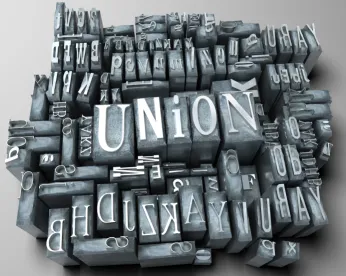On February 13, 2019, a Grievance Arbitrator issued an arbitration award to the City of Madison with regard to when union dues deductions may be stopped for employees who are members of a bargaining unit. It is one of the first grievance awards in Wisconsin interpreting deductions of union dues since the US Supreme Court's ruling in Janus v. AFSCME Council 31.
The Arbitrator's Decision
The Arbitrator ruled on a grievance filed by the Teamsters Union Local No. 695, which represents City of Madison transit employees. The grievance arose after the City reacted to the June 27, 2018 U.S. Supreme Court decision in Janus v. AFSCME Council 31, wherein the Court held that, under the First Amendment, public sector employers and unions cannot contractually require fair share payments to be automatically deducted by non-consenting employees represented by the union (our Legal Update containing an in-depth discussion of the Janus decision can be found here). Upon reviewing Janus, the City of Madison advised all transit employees represented by the union that they had a right to end payroll deductions for union dues. In response, multiple transit employees indicated they wanted to end the payroll deduction, and the City honored those requests. The Union then filed a grievance, which the Arbitrator upheld.
In doing so, the Arbitrator concluded that the City's reliance on Janus was misplaced, because Janus only discussed the constitutional First Amendment free speech rights of public sector employees who were not members of a labor organization but who were nonetheless contractually obligated to make payments to a union that served as the collective bargaining representative. Thus, the Arbitrator concluded under the specific provision of the dues language in this collective bargaining agreement that Janus does not apply to union members who already provided written authorization for dues deduction, even though such authorizations were provided prior to the Janus decision While the Arbitrator recognized under Wisconsin law that public sector union members may withdraw from being union members, the Arbitrator found the contract language and existing authorizations to be valid under Wisconsin's law.
Because the Arbitrator concluded the City improperly stopped collecting and remitting union dues, the Arbitrator ordered the City—not the employees—must remit to the Union an amount equal to the dues the City failed to originally collect and remit, even though those members had revoked their authorization. The Arbitrator rationalized this remedy indicating the Union had technically not received notice of the revocations and the deductions stopped prior to the contractual time period for stopping deductions. The Arbitrator also dismissed language in the parties' collective bargaining agreement that provided the City would be held harmless with respect to any legal controversy that may arise over the dues deduction language in dispute.
Analyzing the Arbitrator's Decision
The Arbitrator's decision is based upon specific language of the City of Madison's collective bargaining agreement. Here it appears the union dues language was separate and distinct from fair share language and that a sufficient Saving Clause provision existed so as to save the dues language. Many other public-sector employers though have a co-mingled provision that includes both fair share and union dues together thus making the complete provision likely an illegal provision and not subject to clear modification by a savings clause.
Yet, the Arbitrator's decision arguably misinterpreted and misapplied Janus by stating it only applies to non-union members. Simply because Janus did not specifically address the First Amendment rights of union members and how those rights intersect with contractually required union dues deductions does not mean union members have less of a First Amendment right to opt out of union dues deductions than their non-union counterparts. This is particularly true for union members who, like the City of Madison union members, authorized union dues deductions prior to the issuance of Janus, as those employees were not aware of their First Amendment right to opt out of such deductions until Janus thereby leaving open the very real question of whether such authorizations represented a knowing and affirmative consent to the deduction of dues.
According to the Arbitrator, even though the City of Madison's employees consent to union dues deductions before Janus, they were prohibited from opting out of such deductions upon learning of their right to do so from the City. Instead, the Arbitrator held such employees were prohibited from ceasing union dues deductions outside of the one-time-per-year opt out provided for under Section 111.70(3)(a)6, Wis. Stats. and seemingly holding state law above the Janus decisions interpretation of First Amendment Rights protected by the United States Constitution. The Arbitrator's conclusion appears to squarely conflict with Janus and, in doing so, arguably violates the First Amendment rights of the City of Madison's employees who do not want to contribute union dues.
In this regard, the Arbitrator's decision may create a quandary for municipal employers who have contract language similar to the City of Madison and who have union members expressing a desire to opt out of union dues deductions. Such employers may be left with a choice of complying with the Arbitrator's decision or arguably violating the First Amendment rights of the union members seeking to opt out.
Additionally, the Arbitrator interpreted the word "all" in the indemnification provision to mean "some." The indemnification provision in Madison now only applies to "some" disputes, not "all" disputes as expressly set forth in the language, even if those disputes arise due to the application of a US Supreme Court decision involving First Amendment rights.
Finally, the Arbitrator's remedy appears more punitive than realistic or remedial. The Arbitrator relies on a technical interpretation of notification to the union despite the grievance occurring because the union knew dues had stopped. Further, all dues were required to be repaid by the City even though, at some point even under the contract language, employees could opt out. Clearly, any responsibility for payment stopped after the contractual time period occurred for stopping payment.
What Should a Public-Sector Employer Do Moving Forward
Municipal employers should protect themselves under Janus by doing the following:
-
Review the relationship between dues deductions and fair share both in the collective bargaining agreement and in the authorizations. If the dues deduction and fair share language is co-mingled, then the complete provision and authorization may be illegal under Janus, as this is clearly distinguishable from the language in the City of Madison collective bargaining agreement language subject to this grievance arbitration case.
-
Revise the union dues deduction language and eliminate fair share language in applicable collective bargaining agreements to comply with Janus as it relates to both union and non-union employees. This will help employers avoid a grievance similar to the one filed against the City of Madison, as both parties will have expressly agreed that all employees may opt out of union dues deductions.
-
If your municipality stops collecting union dues deductions from employees who have revoked their prior consent and a grievance is filed in response, the municipality should escrow the dues pending resolution of the grievance to avoid having to back pay the deductions from taxpayer dollars as opposed to the employees' pay checks
-
Consult legal counsel prior to revising applicable contract language and ceasing union dues deduction to determine if such steps are appropriate and proper under the circumstances.




 />i
/>i
